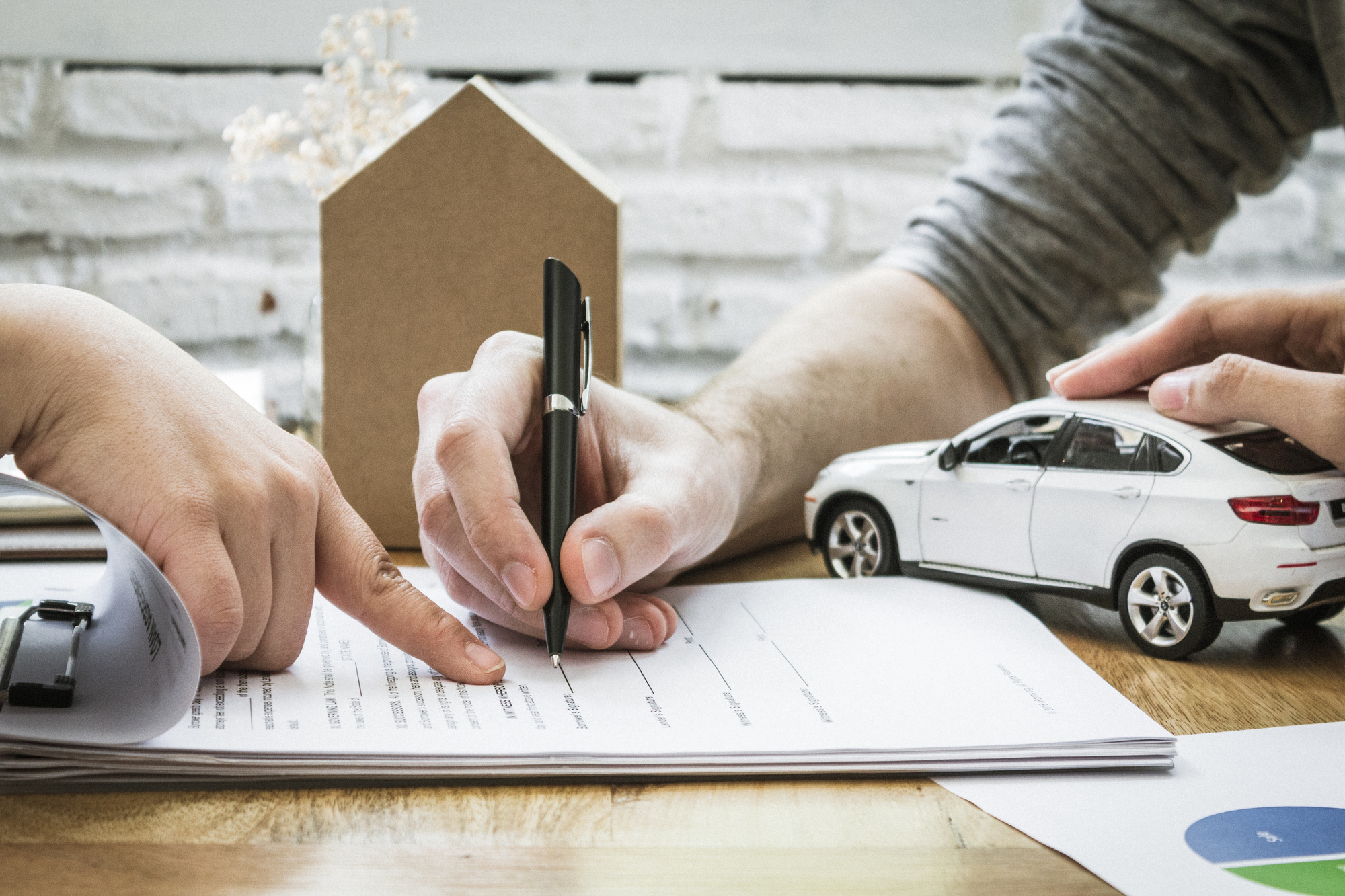So you just bought a new (or your first) car, and you don’t know much about buying car insurance. You’re wondering what you need to know about car insurance so that you don’t get scammed, or taken advantage of when you seek out the right policy.
The truth is that there are tons of car insurance options out there, many of which think of customers as money pits. Their goal is to get you locked into the highest monthly rate without really hearing your concerns. As a new car owner, you want to avoid these and find someone that will work to meet your needs.
In this auto insurance guide, we’ll look at nine must-know tips for buying car insurance on your newly leased or financed vehicle. Let’s get started!
1. Personal Injury Vs. Personal Liability
It’s crucial for you to always make sure you put you and your family’s safety first. Your coverage should be the first thing you look at with any insurance package. If you get in an accident, the first thing they’ll be asking for is your insurance card before they can even treat you.
Straighten out your priorities and keep you and your family safe, then think about these other tips. From there, determine how much coverage you really need—and here’s where you can read more about that.
2. Who Should You Buy From?
You can purchase car insurance from either an independent agent or a broker. The difference is that an independent agent doesn’t represent one single company—they represent you.
An independent agent usually works on commission. Similar to your car buying experience, they may be motivated to get you into a package that pays their bills. On the other hand, they are able to more easily customize your insurance needs into one package than a large brokerage company.
3. There’s Always A Way To Save Money
Ask questions like “Why am I paying so much?”. Be specific. Find out exactly what you’re getting for your dollar.
These little tips represent something important about car insurance: it’s quite easy to overpay. There’s a lot of fine print and large words, and you can easily get upsold on something you don’t ever use just because it sounds important.
When it comes to purchasing car insurance for beginners, ask questions and do your homework. Kindly say no thank you to things you don’t need.
4. Shop Around
This tip also applies to saving money, but it’s often overlooked. You should shop around for different quotes, especially ones that offer similar or the same types of coverage. One study in California found that insurance quotes ranged from $500 to over $1400 for the same exact coverage.
This is one of just many tips for saving money on car insurance that you should be considering.
5. How Can You Speak With The Agents?
Your car insurance company should have multiple lines of communication in case you need to get ahold of them. For example, big companies like Geico and State Farm have 24/7 call support as well as live online chat accessibilities. You don’t want to get stranded somewhere or need to file a claim and have no phones picking up on the other end.
Do your homework ahead of time and see how accessible they are. Even small insurance companies should be easy to get a hold of.
6. What’s Absolutely Necessary?
Your coverage will be different depending on your comfort level, the cost of the car, and whether you’ve leased or financed your new vehicle. If your car is brand new, you’ll probably want both comprehensive and collision insurance on the vehicle. Without both, you might end up paying a ton out of pocket for an accident.
Also, it might actually be written into your lease that you have to maintain a certain type of car insurance for the duration of the contract. Ensure that you know what your vehicle needs so you don’t get hit (no pun intended) for not being diligent.
7. Check Your State’s Requirements
Liability coverage is required in many states, some of which require up to a certain amount for the policy to be legal. For example, New York requires $25,000 of liability insurance for bodily injury.
If you’ve recently moved or might relocate your new vehicle, you’ll want to check on these. Again, this is part of your homework beforehand that could save you a chunk of change long-term.
8. Youth and Inexperience Matter
Perhaps you’re a bit younger if this is your first vehicle. If so, check out the ways your insurance options penalize you (or make you pay more) for your relative inexperience. Yes, they’re taking a risk by insuring you—but you shouldn’t be paying so much out of pocket if it isn’t necessary, especially if you are a safe driver.
9. Roadside Insurance
It would serve you to know your insurance policy’s roadside services (or to consider them as an option when you’re purchasing). The truth is that you could be stranded somewhere, and without roadside insurance, it might take a long time—and a lot of money—to get you and your car to the nearest auto shop.
Roadside insurance usually isn’t that expensive, but might really come in handy, especially if you’re doing a lot of long-distance driving.
Buying Car Insurance: Wrapping Up
When it comes to buying car insurance, your number one priority should be to make sure you and your family are safe. It takes a lot of research and consideration to get the lowest-cost policy that covers you for your specific situation. At the end of the day, you want to be comfortable with what you’re covered for without spending an arm and a leg.
Since you just bought a new car, check out our auto maintenance posts to ensure you keep your car running smoothly. Happy driving!

